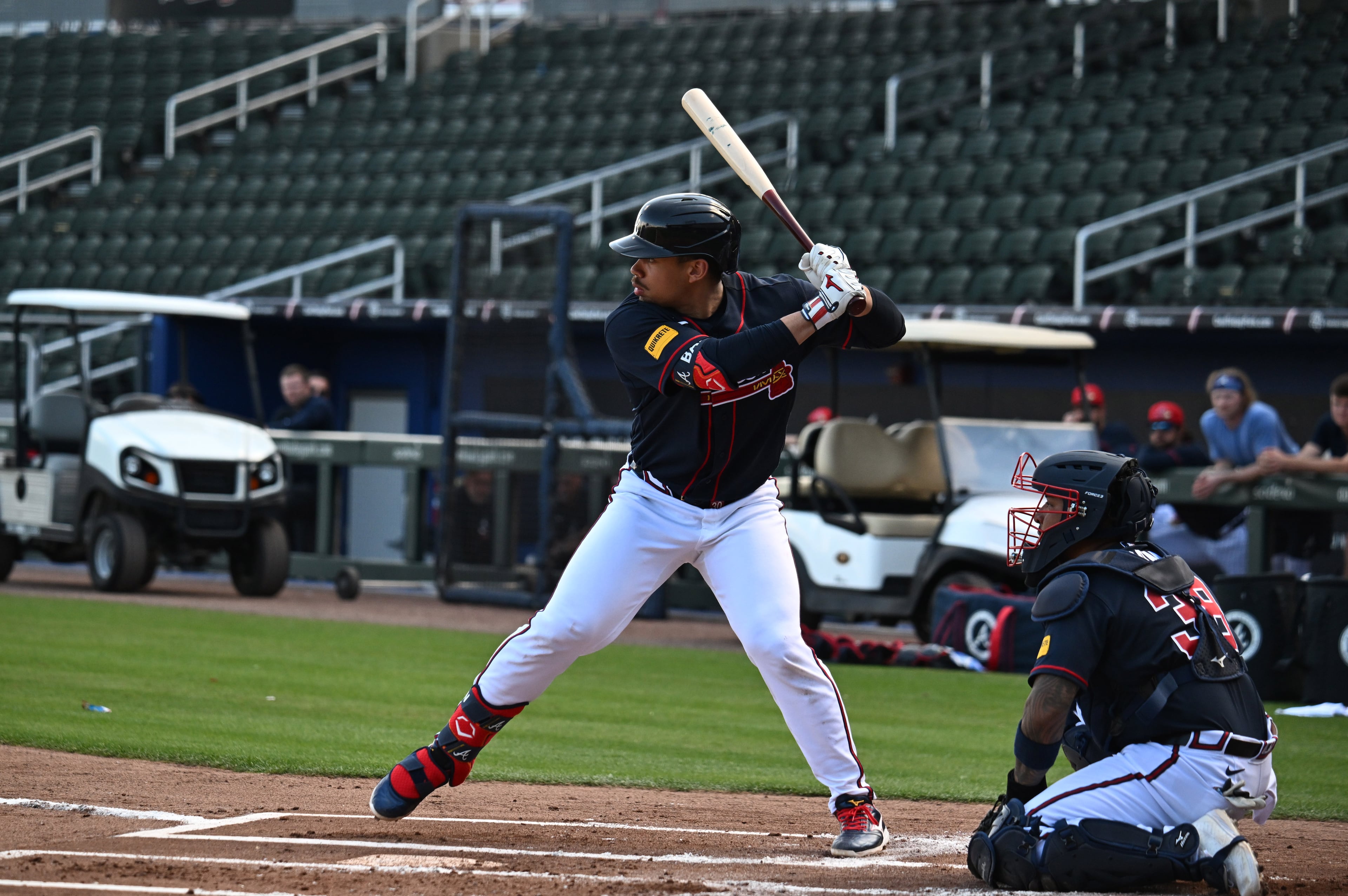Bradley: I believe Braves’ rebuild will work. Here’s why it might not.

I'm on record as being an admirer of the Braves' rebuild in its audacity, its execution and its speed. That hasn't changed. I believe this will work. But this is sports, where there are no guarantees. Today's exercise is to identify the possible flaws in the grand design.
1. Pitching is hard to project. Jake Arrieta was drafted three times — in the 31st round, the 26th round and finally the fifth round. After 3 1/2 big-league seasons, the Orioles traded him to the Cubs, for whom he won the National League Cy Young Award in 2015.
This isn’t to say that heralded pitchers never hit big: Clayton Kershaw, Max Scherzer, Justin Verlander, Rick Porcello and David Price — Cy winners of recent vintage — were Round 1 picks. But hitters are more predictable. Kris Bryant was the No. 2 overall pick in 2013 and the National League MVP in 2016. Carlos Correa was the No. 1 pick in 2012; Corey Seager was taken 17 slots later; Francisco Lindor was No. 8 overall in 2011. They’re the three best shortstops in baseball.
This Braves regime has exercised three Round 1 picks, all on pitchers. Almost every John Coppolella trade has reaped a pitcher. The upside is that the Braves are loaded with teenage arms — Allard, Soroka, Anderson, Wentz and Muller. The downside is that the industry's No. 1 farm system is, by design, out of plumb. Ten of the Braves' top 16 prospects, according to MLB.com's rankings, are pitchers.
2. Trade partners might be in shorter supply. The Braves see their bountiful pitching as currency to buy to the bats they lack. (Example: Shelby Miller for Dansby Swanson and Ender Inciarte.) But it takes two to tango. The Braves might find fewer dance partners.
Not every Coppolella deal has been a windfall, but most have been good and a few flat-out great. Dave Stewart was booted in Arizona after getting fleeced by the Braves. A.J. Preller had to rebuild the San Diego farm system because he shipped much of it here. Just this winter, Jerry Dipoto shipped two Seattle prospects — pitcher Luiz Gohara and Alex Jackson, once and future catcher — to the Braves. Both are with the Single-A Florida Fire Frogs: Gohara has a 1.98 ERA; Jackson has 10 home runs.
Coppolella has been careful not to take public bows over his tradecraft. He knows that teams might be less likely to work with a guy who’d rub their noses in it. He also knows there are things his organization still lacks. Unless Jackson fast-tracks himself, the Braves will need to upgrade at catcher. But what if the free-agent market is tepid and nobody wants to deal? What if the Braves’ stack of currency is devalued by the lack of supply?
3. Swanson might be good, as opposed to great. Even as the shortstop from Cobb County's face and hair are plastered on Cobb billboards, the Braves' baseball people have tried to temper expectations. ("A winning player," was Coppolella's characterization of Swanson.) Nobody believes he'll be a bust, but he might not be a Correa/Seager/Lindor.
That’s not a knock. The Braves have their cornerstone — Freddie Freeman. Even if Swanson is closer to Jeff Blauser than to Chipper Jones, the Braves did win a World Series with the former at shortstop. (And the latter at third base.) At issue whether the public will accept Swanson as a complementary part. Expectations can be tough.
4. For all those young pitchers, there mightn't be an ace in the deck. After Coppolella's first 10 months of restocking, an unnamed National League executive told ESPN's Jerry Crasnick: "I really do like the strategy." The guy also wondered if the Braves had collected a "bunch of No. 4 starters."
That has surely changed. Allard and Soroka have top-half-of-the-rotation potential. So does Sean Newcomb, now at Gwinnett — provided he can throw strikes. Mike Foltynewicz has a big-league arm and has shown signs of being a big-league pitcher. But back to Point No. 1: Pitchers are weird. They have control issues. They have mechanical glitches. They go see Dr. James Andrews.
Think back to 1991: At that giddy time, you wouldn’t have picked Tom Glavine or John Smoltz as the most likely Brave to land in Cooperstown. You’d have picked Steve Avery.
5. Money could change everything. The Cubs drafted bats and bought/traded for arms. The Astros, who suffered 324 on-purpose losses and had the 1-1 pick in three consecutive drafts, spent $68 million last winter for one year of Carlos Beltran and four of Josh Reddick. Even the best rebuilds can't account for everything.
There will come a time when the Braves need to splurge on a big-ticket player, be it an assumed contract or a free agent. Will Liberty Media give the nod? Some of this will depend on SunTrust Park as a revenue stream, which means — not to get cloying — it will depend on y’all.
Reviews of STP have been effusive. Weekend crowds have been strong. But what if the Braves hit a stall? (Er, don’t look now … ) What if the newness fades and attendance sags? Will faceless ownership say, “You guys have done great with the farm system, and we trust you enough to let you spend”? Or will it say, “Can’t you do another of those money-dumping deals? We liked those.”
6. File under "duh": Not all good prospects become good players. True. But some do. Which is why it helps to have a heap of them. Which is why I continue to believe.



